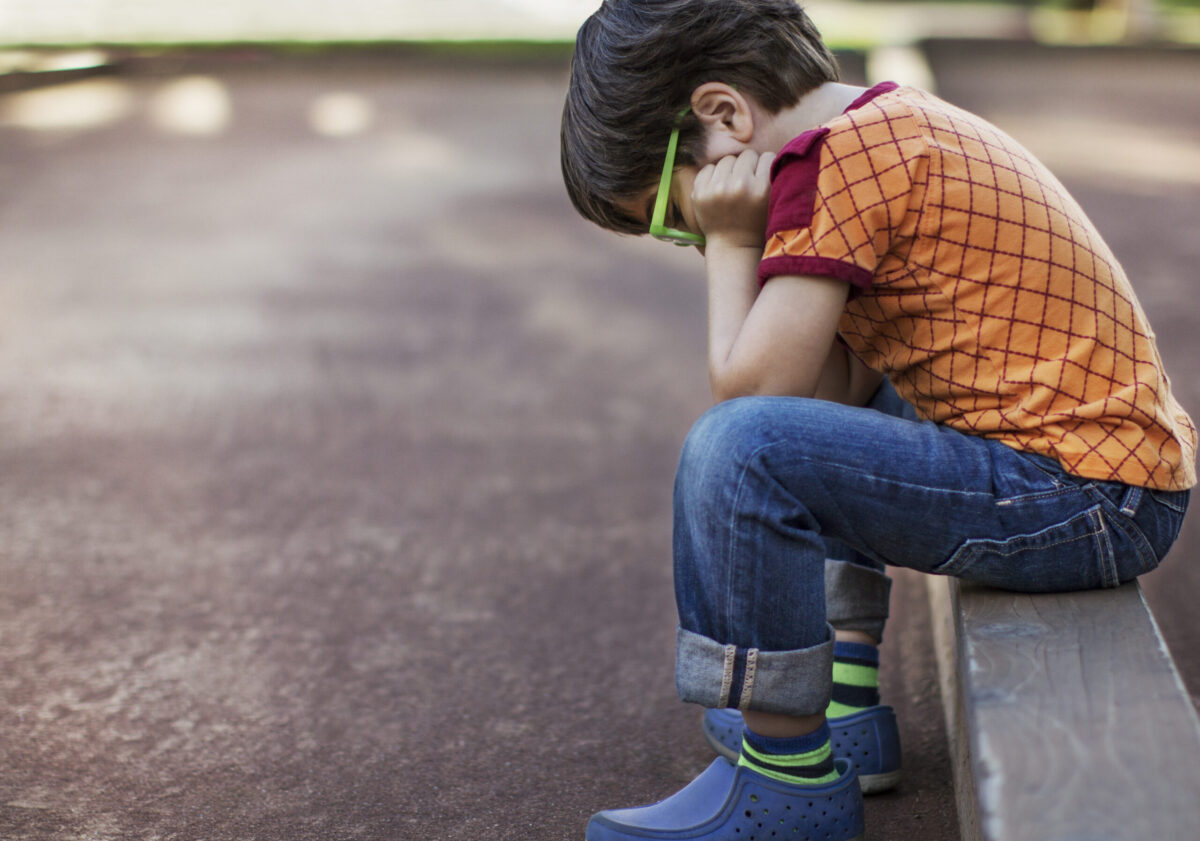Depression looks different in kids. So do anger, anxiety and stress. It’s a fact many adults don’t recognize, even though children rely on us to see when they are struggling.
“When kids experience depression or anxiety, they may not be able to identify those emotions, or to express them in words if they do,” says Laura Bertrand, licensed professional counselor and mental health expert at BlueCross BlueShield of Tennessee. “When feelings like that get bottled up, they spill out in other ways, from sleep problems to outbursts to changes in eating.”
7 signs your child may be struggling with depression or mental health challenges
1. Irritability
“The biggest indicator for depression among kids is irritability,” says Bertrand. “It can be really problematic because parents can get frustrated thinking that their child is just ‘being difficult’ rather than taking the time to think about what the underlying cause is. But if your child is consistently irritable, it’s something you should look into.”
To learn more about what irritability is telling you about your health, click here.
2. Appetite changes
When kids feel like their lives are out of control, one of the easy things for them to control is what they will and will not eat.
“Every parent deals with a certain amount of food issues,” says Bertrand, “but if it gets extreme, it’s an indication of something bigger.”
To learn the 12 symptoms of eating disorders, click here.
3. Sleep issues
If children feel depressed or anxious, it affects their sleep the same way it does for adults. Take note if your child frequently has trouble falling asleep, wakes up in the middle of the night or has nightmares often.
Find out 5 reasons your child may not be sleeping well here.
4. Anger
Mental health professionals often define depression as ‘’anger turned inward,” and right now, we’re seeing a lot of that, says Bertrand.
“I recently talked to a friend of mine whose 7 year old had 3 outbursts in 24 hours,” she says. “When she looked into the problem, she realized it’s because her child’s friends are all going back to school, and she can’t. My friend has pre-existing health conditions, so it wouldn’t be safe for her daughter to go to school. By identifying the underlying problem, they were able to talk about it.”
5. Regression
In young kids, anxiety can cause regression related to sleep, potty training, tantrums, or eating. For teens, long-term isolation and uncertainty can cause regression in social skills, emotional maturity and schoolwork.
For 9 tips on parenting teens, click here.
6. Difficulty focusing
Depression can also express itself as confusion, memory problems or difficulty focusing on tasks.
7. Inability to regulate emotions
When kids or teens don’t have the words to express what they’re feeling, it can come out as rage or self-harm.
“Self-harm can happen in very young children simply because they don’t have the vocabulary to explain what they’re feeling,” says Bertrand. “For example, a toddler hitting themselves or hitting their head against a wall is not uncommon, though parents rarely talk about it. Don’t be afraid to say what’s really going on and ask for help.”
Get suicide prevention help for your child by calling 855-274-7471 or texting TN to 741-741.
3 ways to help your child with mental health challenges
Soothe
If your young child throws a fit or attempts self-harm, don’t yell. Try to stop them in a loving, soothing way.
“Nobody ever calms down because somebody yells ‘Calm down!’ at them,” says Bertrand. “Offer your child their blanket or favorite cuddle toy and talk to them in calming tones.”
Communicate
Be honest with your kids about how you feel, even if that feeling is anxiety or fear.
“Tell your kids how you feel, but with age-appropriate language,” says Bertrand. “It’s okay to say, ‘This is scary for mommy and daddy too,’ or ‘We don’t know how long this is going to last but we’re doing everything we can to stay safe.’ Kids recognize and appreciate honesty.”
Act
Because depression is emotionally and mentally driven, it can be hard to diagnose. Be proactive if you think your child is at risk.
- Don’t be afraid to ask your pediatrician for a referral to a behavioral health professional if you think your child needs one.
- If medication is prescribed, give it time. Many antidepressants don’t kick in for several weeks.
- As it relates to coronavirus, talk about what you can do rather than what you can’t.
“Let your child pick out their own mask, and show them that a mask is something positive that they can control,” says Bertrand. “If your child can’t return to school physically, connect with other parents, set up penpals, or allow kids to play online games like minecraft with classmates. Finding creative ways for kids to connect is one of the best things a parent can do for a child’s mental health.”
Get more information about specific health terms, topics and conditions to better manage your health on bcbst.com. BlueCross BlueShield of Tennessee members can access wellness-related discounts on fitness products, gym memberships, healthy eating and more through Blue365®. BCBST members can also find tools and resources to help improve health and well-being by logging into BlueAccess and going to the Managing Your Health tab.


